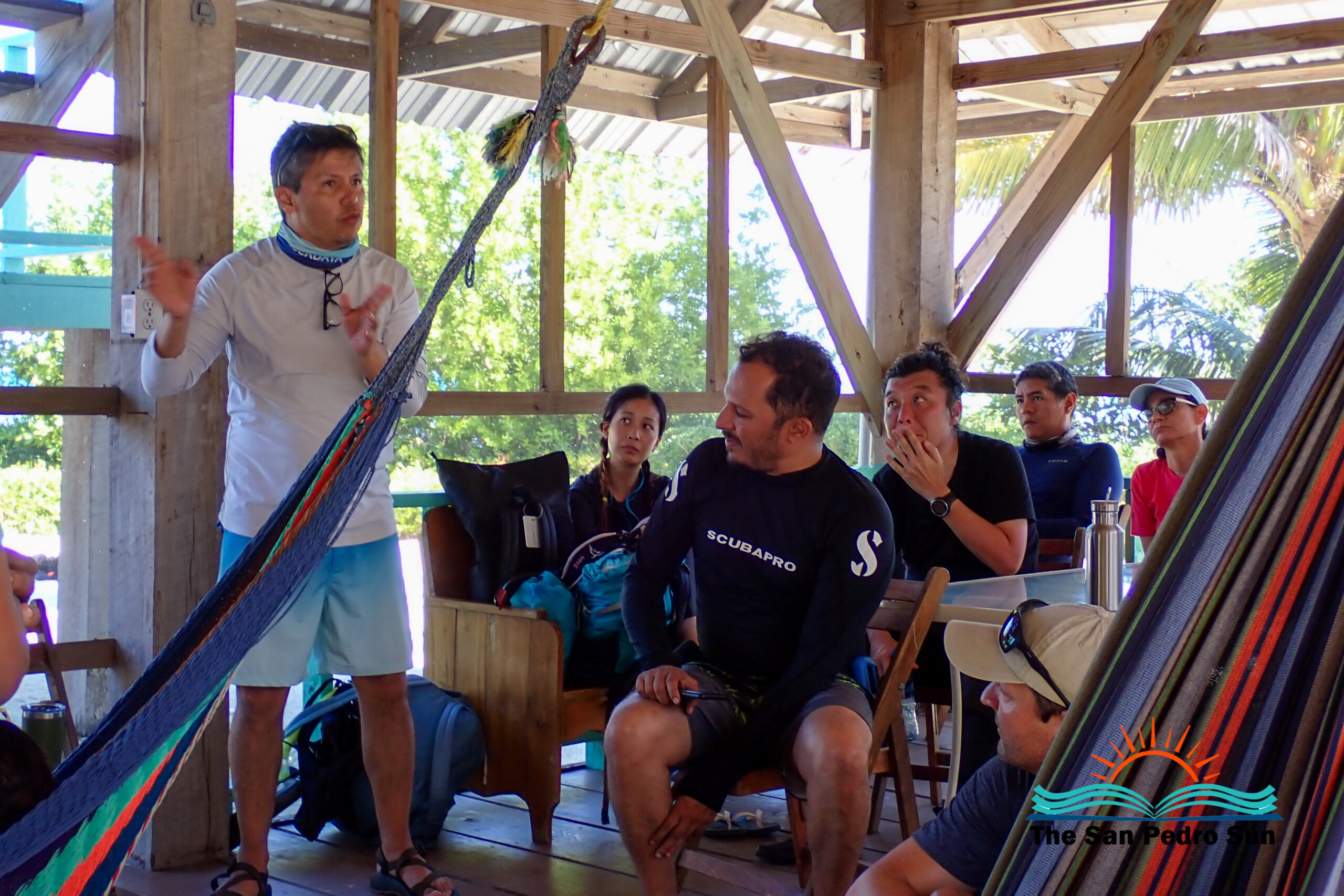Part two of a two-part series. Recap: The Wildlife Conservation Society (WCS) sponsored a media trip to Middle Caye at Glover’s Reef Marine Reserve on February 28th, where experts were available for interviews while on a field trip to Glover’s Reef Research Station. The specialists were among fifty-plus marine conservationists who attended the Belize Shark Conference in Placencia from February 26th to March 1st. At the conference, regional, international, and local authorities discussed shark research, conservation, and counter-wildlife trafficking.Click here to read part one. 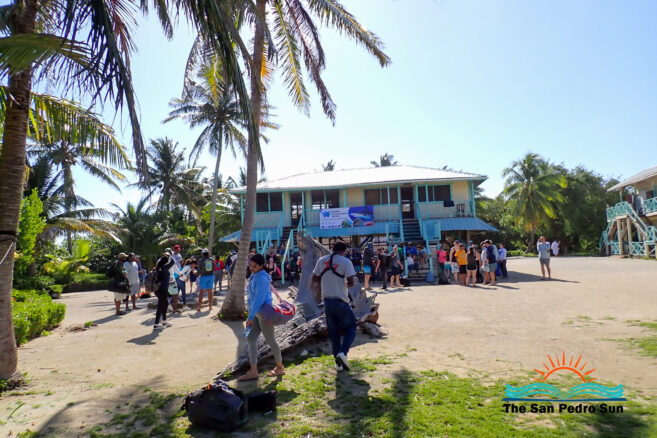
The Interviews
According to Luke Warwick, WCS Director of Sharks and Rays, establishing protected marine parks has made a significant difference. “Glover’s Reef is a globally famous shark and reef conservation and research location. Some of the first research conducted on protecting sharks and rays using marine parks as protected areas was here on this atoll. We now have national parks in the ocean. Sharks and rays are the second most threatened group of animals on the planet. They are very slow to grow and reproduce, leading to huge population declines worldwide. Here in Belize, with a national sanctuary and strong fisheries management measures for sharks, we’ve started to see stabilization and some recovery. We face losing these ancient ocean predators in the next few decades unless we all act globally to save them, like Jaguars and other big predators on land; these species really can’t take high levels of pressure from humans. And just like those predators on land, they help keep healthy marine ecosystems by eating sick and older fish, keeping coral reefs in balance. Some of the research conducted here allows us to understand how we will significantly impact these species.”
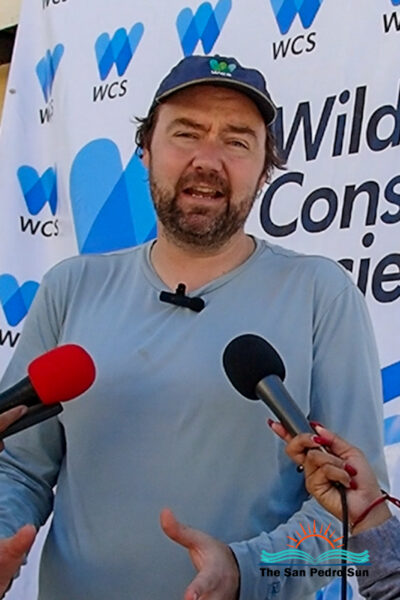
WCS Marine 30×30 Director Pamela Castillo explained the 30×30 Ocean Conservation Plan. “30 by 30 is the global recognition that we need to make peace with nature, which is reflected in a global target to conserve 30% of our oceans by 2030. With support from governments around the globe, we have a critical process to generate the local and native conditions for coastal communities. Not only to empower but also to manage the resources that will include gender. We need more women leaders leading this process; we need more fisheries leading this process; we need political leaders to be committed with the local communities to work together and build what Belize is already working on. (* In 2022, nearly 200 nations finalized the “30×30” global target to protect 30% of the world’s ocean and land areas by 2030. The landmark agreement is vital toward building a biodiverse, productive, and resilient future.)

According to Hoyt Peckham, WCS Global Director for Community Fisheries, the two-mile buffer zone around the offshore atolls is a successful form of conservation. “Belize is a global leader in shark conservation, and it’s really exciting to hear how they’ve protected the buffer zone around the offshore atolls to two miles. We’ve seen the data that when people illegally cast long lines, they would drift close to shore and catch a lot of juvenile reef sharks, called bycatch. Since they (the government of Belize) enacted the two-mile buffer zone, we’ve seen a dramatic rebound in reef sharks. You can lose the integrity of a whole reef ecosystem without sharks because they regulate ecosystems, no sharks, no healthy reefs. You also need local fishers and their families to be directly involved in conservation, to be invested in it, to appreciate it, to understand it, that they are the guardians, including reef ecosystem education in the schools. Belize is a world leader in co-management and collaborative management of things like shark resources.”
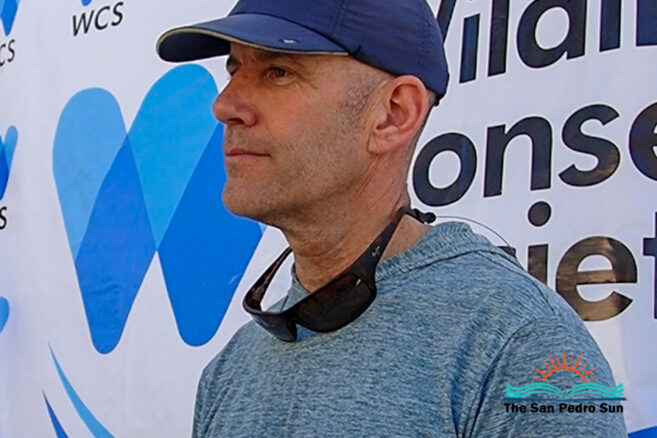
WSC Director of Belize Country Program Nicole Auil Gomez emphasizes the importance of shark conservation. “I know we all remember when we were in elementary school, and we had to learn about food webs and the importance of predators to keep prey species at the number they should be. So, we need predators to maintain the proper ecology of the immune systems in Belize’s waters and beyond the forest. We need to be able to see large megafauna as the critical species at the top of the food chain. One of the things that we are concerned about is of course illegal fishing and the illegal trade of these species. Recently we’ve been seeing in the news some arrests for illegal shark fishing and it’s important that we have a process in place where fishers must have licenses and where they are allowed to fish. It is important to protect these charismatic creatures for tourism based on our natural environment, which contributes heavily to our economy. Whale sharks, for instance, at Gladen Split is a very important area for sharks and divers. They enjoy seeing these fish and pay a lot of money to come to Belize. They fill our hotels and our restaurants; it’s an economic driver. And with the new CITES (Convention on International Trade in Endangered Species of Wild Fauna and Flora) regulations, we know that Belize is working on ensuring compliance when permits need to be issued for exploitation of shark species.”
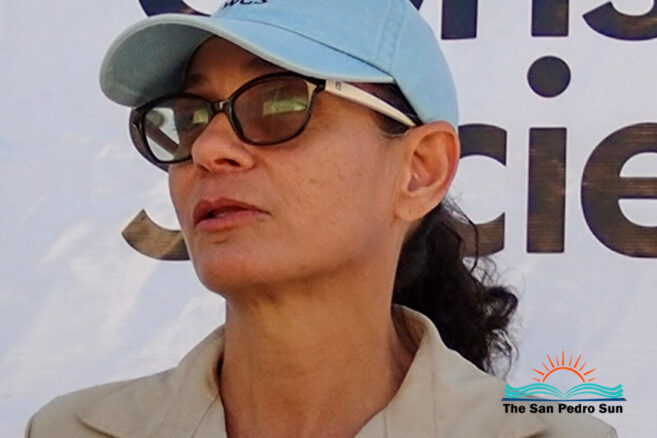
Glover’s Reef Research Station, which is the only one within the reserve, is owned and operated by WSC. Since 1995, the location has accommodated scientists conducting innovative research at one of the Caribbean’s most multifaceted reef systems.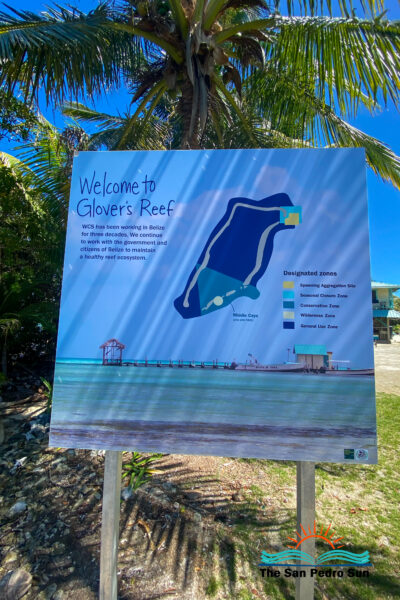
Following the Belize Shark Conference, WCS Shark and Ray director Luke Warick reflected, “The conference was highly successful, creating a space for shark conservationists, researchers, and funders to work together to chart the best possible path towards saving the worlds ocean predators. The big takeaway was that there is still much to do, but the model that the participants from around the world saw at Glovers Reef was inspiring to all. The work to establish the MPA (marine protected area), to consider sharks when expanding its borders to prevent the targeting of sharks just outside the protected waters, and the partnerships with fishers and the Belize Government were noted by all as measures that could be replicated globally to better protect sharks and rays”.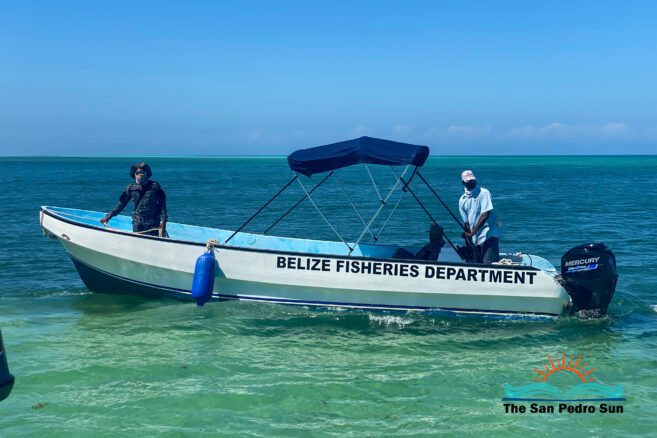
In conclusion, WCS Belize Communications Coordinator Deseree Arzu commented on the importance of partnering with the local media. “As the fourth estate, the media plays a pivotal role in helping organizations like WCS, who work hard to help save wildlife and wild places and spread the word of conservation. We aim for the media to become conservation and environment stewards in Belize. Our country is blessed with a Barrier Reef that provides employment, food, recreation, and so much for both locals and visitors. Only through collaborative efforts and linkages that we make with our stakeholders, as we did for this conference, will we be able to make a difference and help change negative attitudes and behavior towards our precious marine and terrestrial resources. This is just one of many activities in which WCS anticipates involving the media moving forward. We plan to keep you all engaged in the fight to protect important species, such as sharks and rays, not just in Belize but also in the region and globally!”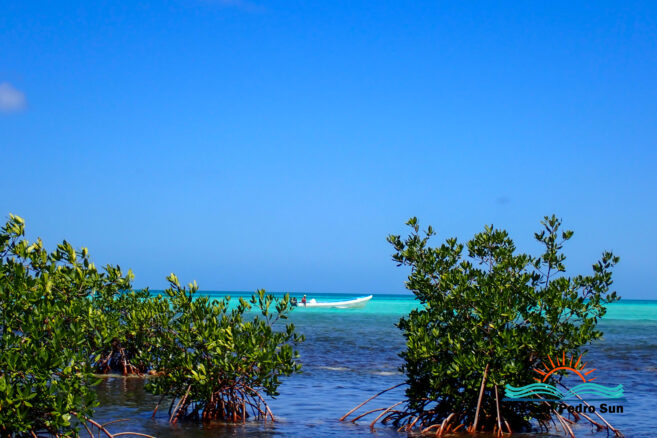
Wildlife Conservation Society saves wildlife and wild places worldwide through science, conservation action, education, and inspiring people to value nature. To achieve our mission, WCS, based at the Bronx Zoo, harnesses the power of its Global Conservation Program in nearly 60 nations and in all the world’s oceans and its five wildlife parks in New York City, visited by 4 million people annually. WCS combines its expertise in the field, zoos, and aquarium to achieve its conservation mission. Visit: newsroom.wcs.org Follow: @WCSNewsroom. For more information: 347-840-1242.

